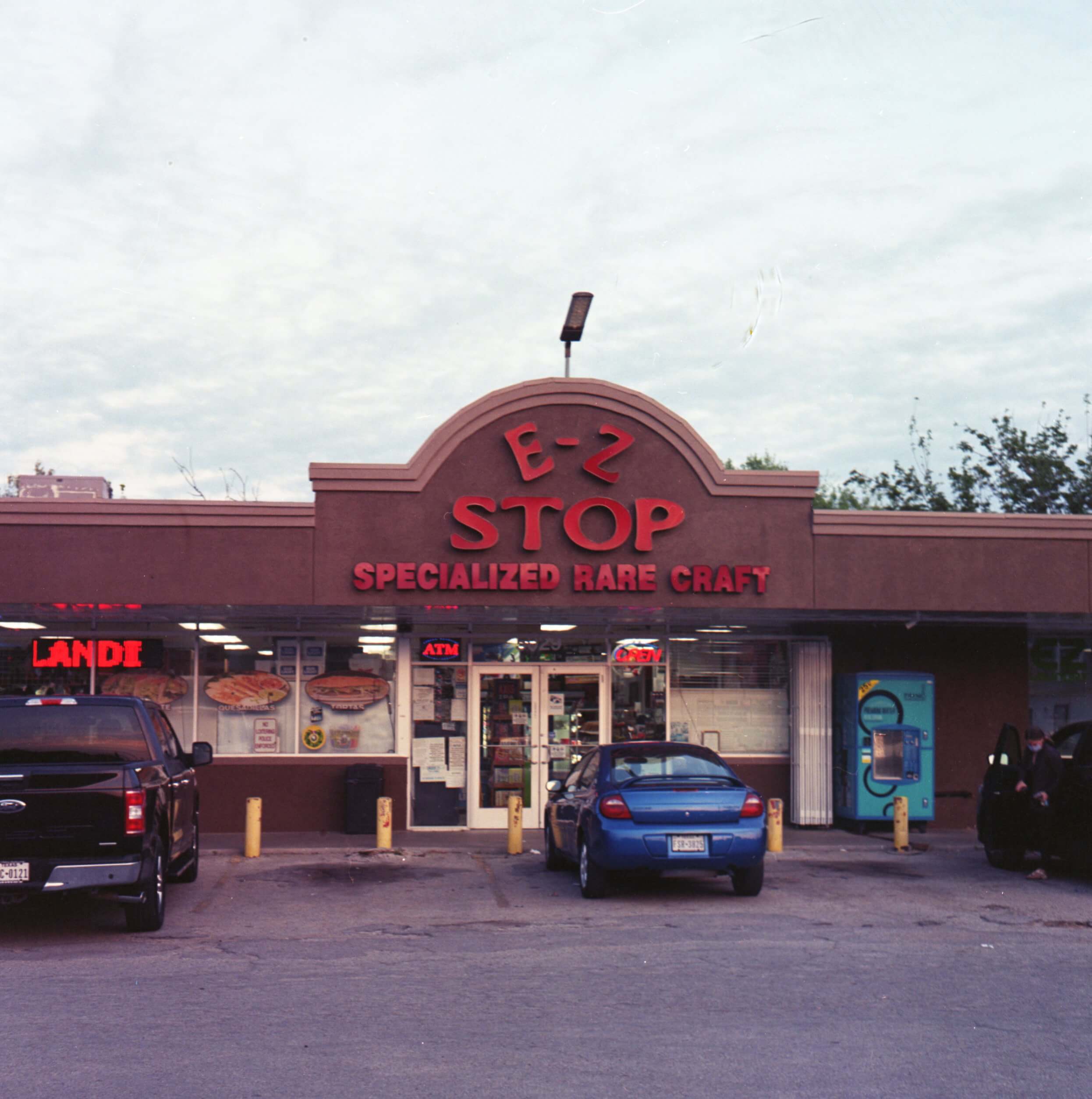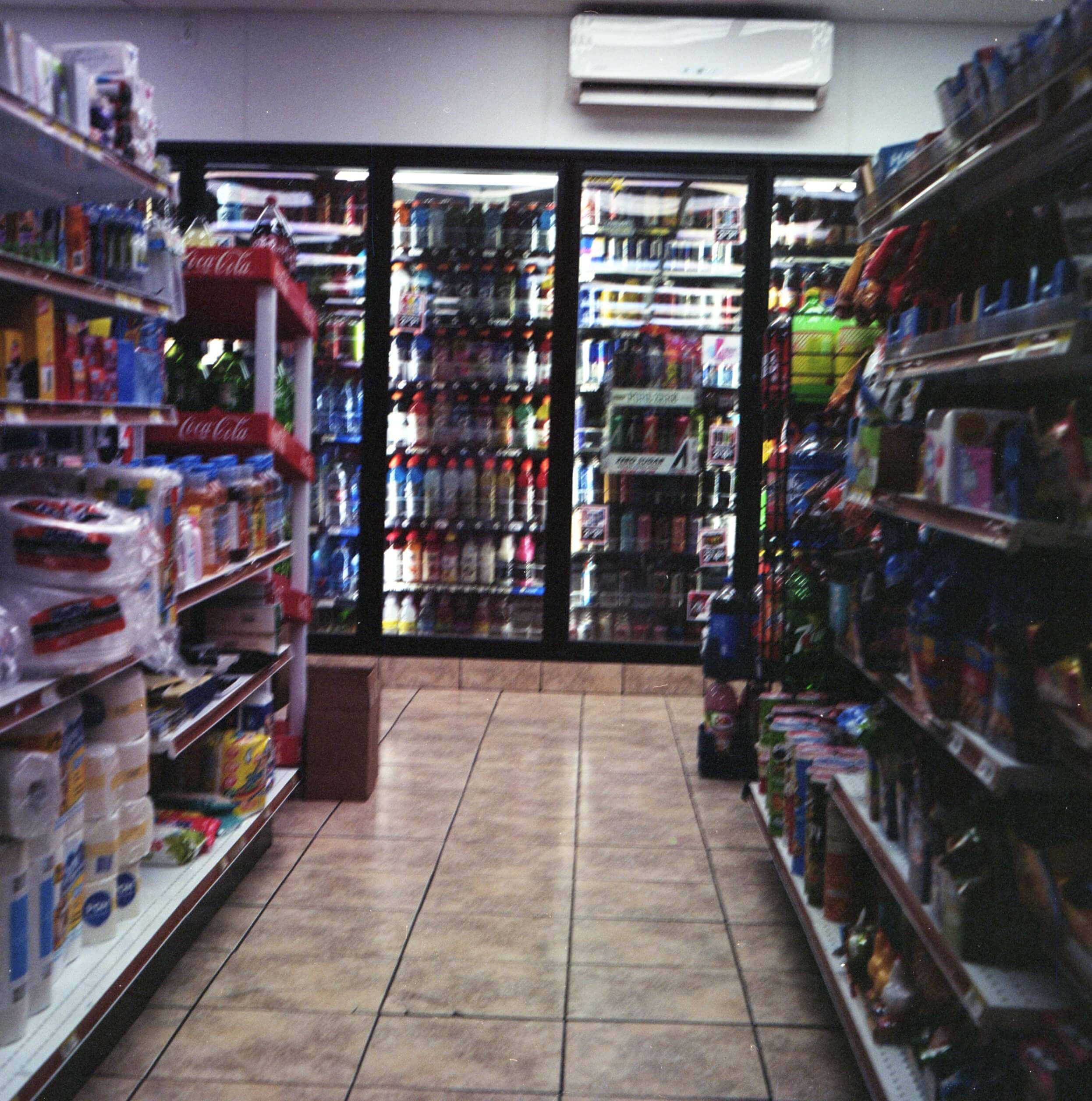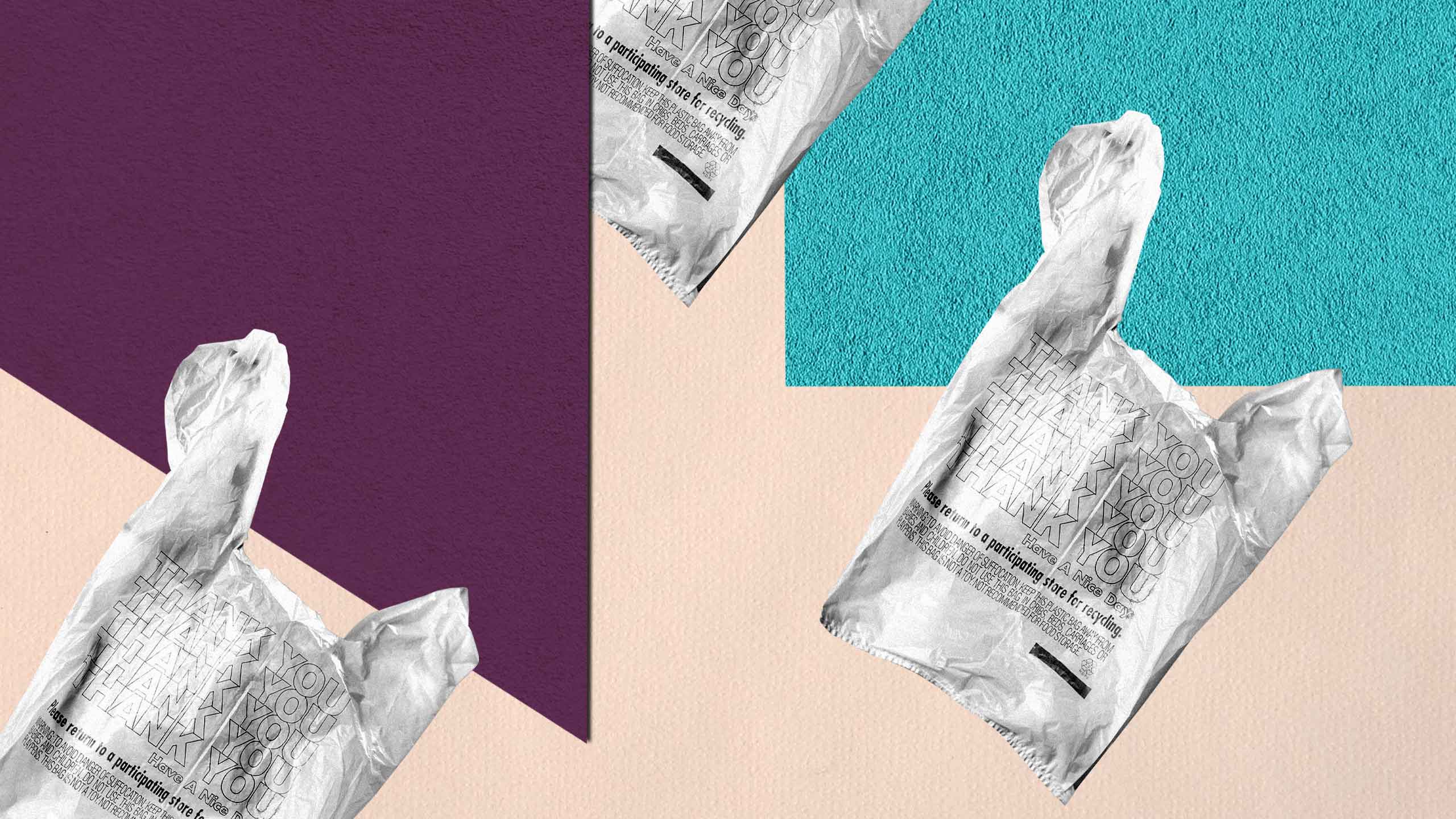It is a Tuesday morning, 11 months into living through the pandemic in the United States, and I have finally bought breakfast tacos from my corner store. This is an important breakthrough. Everything about the E-Z Stop Grocery & Gas is important to me. My corner store has become a genuine home away from home—the only other physical space outside of my house that I occupy with any regularity or comfort during these quarantine times.
My corner store existed before the pandemic and it will exist after, forever and ever, amen. Before March 2020, I had stepped onto its noble linoleum floor many times to purchase a six-pack of PBR, or two six-packs of PBR, or to pay cash for $15 of gas from one of the two Conoco pumps outside. My pre-pandemic visits always fulfilled very specific purposes, and for that, the corner store was an important place to me. Would I have called it a home? Though it had all the accoutrements of one—a kitchenette, a place to sit, a coffee machine, polite conversation, three lottery gaming machines, a beer freezer, six beer fridges, an eight-square-foot beer chest, two six-foot-tall craft pint beer racks, three more specialty beer fridges by the front door—probably not. At least, not until the pandemic hit.
I realized all too quickly that there are only so many ways you can pace around a 1,500-square-foot split ranch before your feet start to get bored. So the chance to pace around someone else’s 1,500 square feet, and even purchase a treat or two for you and a loved one? Maybe I’m desperate to claw at any scrap of normalcy and call it brilliant, but buying a king-sized Snickers for two sure sounds dreamy to me. Prompted by the sheer lack of having anything to do at a given moment, I now go to my corner store every day.

Credit: Courtesy JB Bergin
It begins with a walk. Cracked cement, weeds, cigarette butts and a crushed can of Bud Heavy. I pass the bus stop on my right and the two dumpsters on my left before turning the corner and walking the length of the building to the front door. A handmade sign for breakfast tacos adorns one window; it will take me a full 11 months to realize that, obviously, they are only available in the mornings. Double-wide glass doors stand between me and my destiny. I have never known the left door to be unlocked. Being left-handed and forgetful, this catches me off guard more often than I care to admit. I hardly ever have a successful conversation with the shopkeepers after I walk in, because they’re either tending to other customers (when I’m lucky) or they’ve silently watched me try and fail to open a locked door, again (when I’m unlucky).
“Maybe I’m desperate to claw at any scrap of normalcy and call it brilliant, but buying a king-sized Snickers for two sure sounds dreamy to me.”
Safely inside, I relax. When I lived alone, I felt a similar hum, like a receding tide: The door closes behind you and the volume turns down on the rest of the world. I walk around the racks to find what I’m looking for. I breeze past the lottery game machines in the corner on my way to see if they have original-flavoured Pringles still kicking around (to my stomach’s dismay, these are often unavailable). Sometimes I look at the sodas, right behind the game machines: When I want to drink summer, I buy a Sprite. When I want to drink summer as a kid in Massachusetts, I buy a Sunkist. My most frequent beverage purchase nowadays is a seltzer—Topo Chico. After a few months of walking to my corner store almost every day and walking home each time with a beer (or six), I started to consider what not drinking would look like for me—both out of concern for cost and out of consideration for my mental health. Not drinking for me looks like drinking something else, and that something else has been Topo.

Credit: Courtesy JB Bergin
The small talk is always small with the shopkeepers. A quick hello, then a handful of questions: “How are you?” “Bag?” “Would you like your receipt?” We are familiar strangers. We know each other because we are there. They know me because I buy one Topo and a bag of tropical Skittles practically every time I stop by. When I get two soft drinks, they ask me if I’m having a party. I feel safe at my corner store presenting more femme while buying Smartfood, soy sauce, toilet paper or a hot sauce I haven’t tried before (they have an excellent selection of hot sauces). They know me as myself. In the past year, they are some of the only people who know me like that.
On some of my worst days, all I could do was walk to my corner store and buy a pack of white powdered mini-donuts. Maybe I’d stock up on bandaids, or buy a couple scratchies for the house to see if we could gamble a good feeling. I’ve convinced myself many, many times that if I can do any one single thing, I can build a better day for myself than what my brain wants. Being in my corner store helps me realize that some things are already there to help you build the day you want—you just have to walk over and make sure you open the unlocked door.


 Why you can trust Xtra
Why you can trust Xtra


